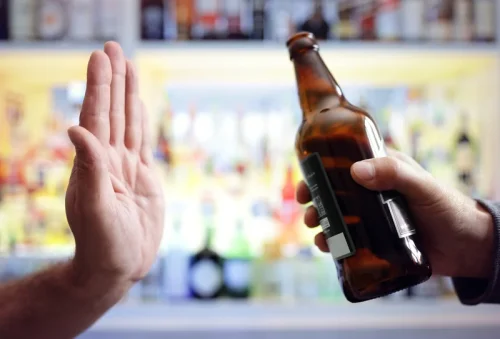
Moderate drinking is having one drink or less in a day for women, or two drinks or less in a day for men. If drinking causes problems in your life, you may have alcohol use disorder (also called alcoholism). Drinking more than a moderate amount of alcohol can put you at risk for personal and health problems, including alcohol use disorder.
What Does ‘Drinking in Moderation’ Mean?

The MM approach has been found most successful for those who have a problem with drinking but do not meet the criteria and have not been diagnosed with moderate or severe alcohol use disorder. In the U.S., 1 drink is usually considered to be 12 ounces of beer, 5 ounces of wine, or 1½ ounces of how to drink moderately spirits (hard liquor such as gin or whiskey). 3 Each delivers about 12 to 14 grams of alcohol on average, but there is a wider range now that microbrews and wine are being produced with higher alcohol content. Through understanding the different ways ‘drinking in moderation’ can look, you can decide how you’d like that to look for you.

Talk Through Urges (aka Urge Surfing)
Women usually have lower levels of alcohol dehydrogenase (AHD) than men. Consequently, alcohol remains in a woman’s system longer and builds up faster. Studies have shown that females begin having alcohol-related problems at lower levels of alcohol consumption than males. In 2015, 26.9 percent of people in the United States reported binge drinking in the past month.
You shouldn’t drink at all, even in moderation, if you:1
- They’re typically straight-up calories, nothing more—and if you order a fruity- or soda-based beverage you’ll add even more “empty” calories.
- Many studies over the past 20 years have suggested that people who have a drink a day or less may have a lower risk of cancer, heart disease, or all-cause mortality than those who abstain from drinking.
- Never disregard professional medical advice or delay in seeking it because of something you have read on this website.
- Heavy drinking, including binge drinking, is a high-risk activity.
People who choose not to drink make that choice for the same reasons. Knowing your personal risk based on your habits can help you make the best decision for you. The less alcohol you drink, the lower your risk for these health effects, including several types of cancer. It turns out that moderation is possible for many people—even some with chronic, heavy drinking problems. Medication can help people overcome their alcohol cravings and establish new habits. There may be options that can help you cut back, without requiring you to quit alcohol completely.

Moderate drinking
The social and psychological benefits of alcohol can’t be ignored. A drink before a meal can improve digestion or offer a soothing respite at the end of a stressful day; the occasional drink with friends can be a social tonic. These physical and social effects may also contribute to health and well-being. Learn more about the results of some large prospective cohort studies of alcohol consumption and cardiovascular disease. The active ingredient in alcoholic beverages, a simple molecule called ethanol, affects the body in many different ways.
She holds a master’s degree in Nutrition Communications from the Friedman School of Nutrition Science and Policy at Tufts University. Her work has appeared in Better Homes & Gardens, Southern Living, Real Simple, Livestrong.com, TheKitchn and more. If you don’t have insurance, you may still be able to get free or low-cost help for alcohol misuse.

- The evidence for moderate alcohol use in healthy adults is still being studied.
- Even moderate drinking may raise your risk for some types of heart disease and cancer.
- Take some time to decide which days are OK to have a drink and which days are off-limits.
Women who are low-risk drinkers consume no more than seven drinks per week, while male low-risk drinkers have no more than 14 drinks in a single week. It found that drinking moderately reduces stress, tension, self-consciousness and even depression. On the flip side, moderate drinking also can increase happiness, euphoria and carefree feelings. Here, we dig into the research and talk with an expert to cull a list (albeit a short one) of the most promising health benefits of moderate drinking. If you choose to drink, having only a moderate (limited) amount can lower your risk for health problems caused by drinking. Some people shouldn’t drink at all, like people younger than 21 years, people who are pregnant or might be pregnant, and people with certain health conditions.
Alcohol & Public Health
- Experts refer to this benefit as a lower risk of “all-cause mortality.” Or—more simply—death from anything.
- Brierley is a dietitian nutritionist, content creator and strategist, and avid mental health advocate.
Drinking responsibly will not only result in longer-term health pay offs, but lovely added bonuses like fewer headaches and hangovers, too. So many people are invested in drinking less alcohol for one reason or another, and in response, the zero-proof spirit market has exploded. Tons of beverage brands offer delicious non-alcoholic drink options from Surely Wines and Ritual Zero Proof Spirits to Little Saints and even Heineken. If your friend group, family, or work colleagues frequently enjoys happy hours, nights out, and other alcohol-centered activities, it can be a struggle to try and cut down. Most people will completely understand your pursuit of new drinking habits and offer their support.






コメント
コメントはありません。